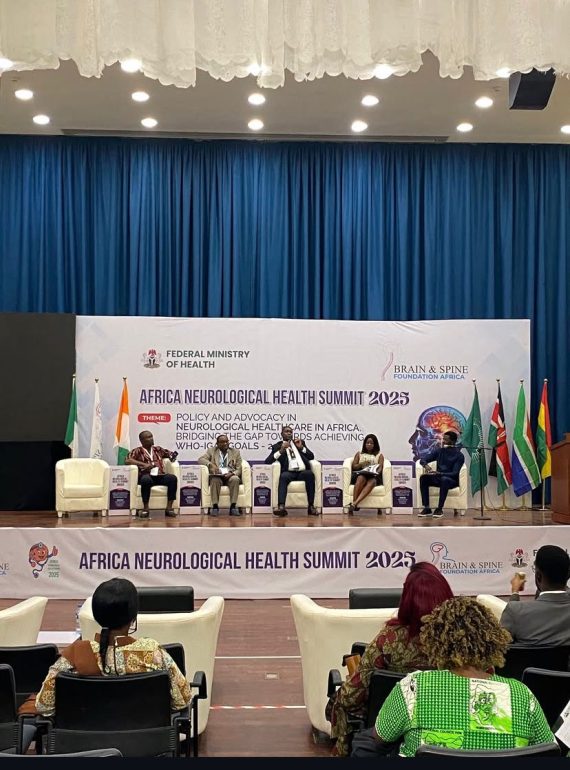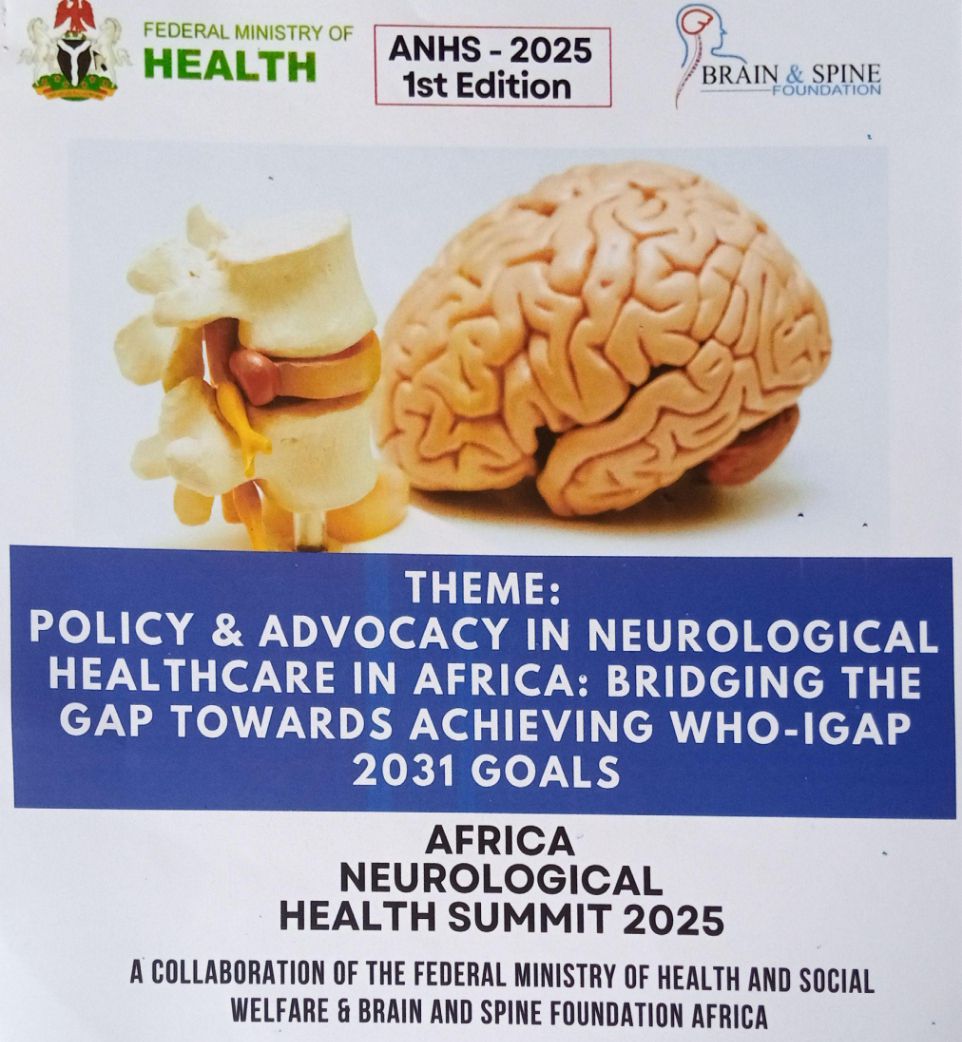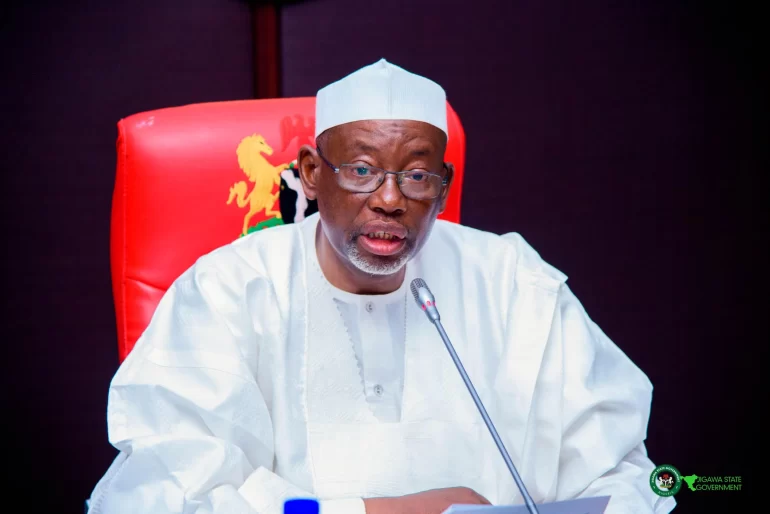Listeners:
Top listeners:
-
play_arrow
104.9FM Best rock music demo
-
play_arrow
Demo Radio Nr.1 For New Music And All The Hits!
-
play_arrow
Demo Radio Techno Top Music Radio
-
 play_arrow
play_arrow
Police Commissioner Launches Weapon and Riot Control Training for FCT Officers Democracy Radio
By Sofiat Adenekan
In a landmark effort to address the growing burden of brain-related illnesses in Africa, the Federal Ministry of Health and Social Welfare—alongside Brain and Spine Foundation Africa—has launched the first-ever Africa Neurological Health Summit in Abuja.
The summit which took place on Tuesday has as theme: Policy and Advocacy in
Healthcare: Bridging the Gap Towards Achieving WHO-IGAP Goals (2022-2031).
The historic summit brought together health professionals, policymakers, advocates, and survivors to spotlight neurological disorders such as stroke, epilepsy, brain tumours, spinal cord injuries, Parkinson’s disease, and Alzheimer’s—conditions that continue to impact millions across the continent, often with lifelong consequences.

Despite their widespread prevalence, neurological disorders remain underfunded and overlooked in many African public health systems. Summit experts highlighted persistent challenges, including delayed diagnosis, limited emergency services, and unaffordable treatment—particularly in rural and low-income areas.
Engineer Chika Okwuolisa, founder of Brain and Spine Foundation Africa, described the summit as a long-overdue step toward coordinated, continent-wide action.
“This summit is a wake-up call for the continent,” said Okwuolisa. “We must begin to treat brain health as a public health priority, not a luxury.”
Since its founding in 2017, Brain and Spine Foundation Africa has supported over 300 patients, led national awareness campaigns, and advocated for improved care and rights for individuals with neurological conditions.
The summit aligns with the World Health Organization’s Intersectoral Global Action Plan (IGAP) on Epilepsy and Other Neurological Disorders—a 10-year global roadmap adopted by Nigeria and all member states in 2021. IGAP focuses on key pillars such as integrated care, data collection, public awareness, and increased investment in neuroscience research.
Organisers say this summit marks a critical step toward building a more inclusive, responsive, and equitable healthcare system—one that recognizes brain health as a fundamental part of national development.
Written by: Toyeebaht Aremu
Similar posts
Copyright Democracy Radio -2024



